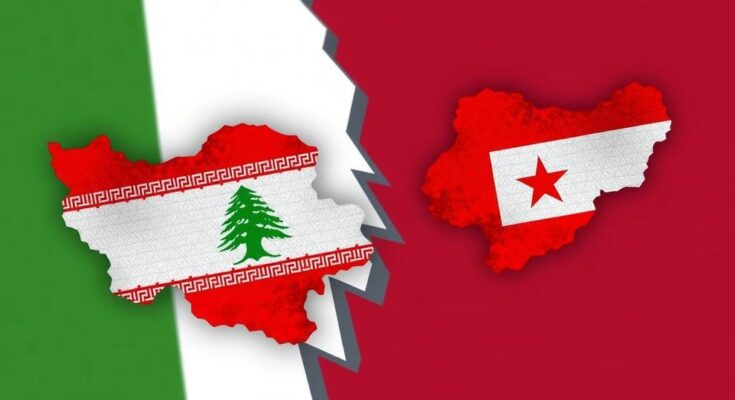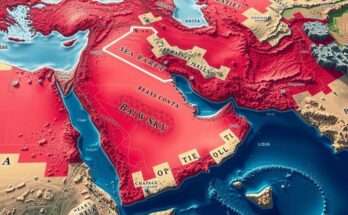Iran is poised to reshape its diplomatic strategy by breaking the link between Lebanon and Gaza. This readiness aligns with two main goals: preserving Hezbollah’s power in Lebanon and reinforcing Iran’s regional influence amidst U.S. dynamics. A proposed ceasefire contains contentious clauses, particularly regarding operational freedoms for Israel, which Nabih Berri, Lebanon’s parliamentary speaker, labeled as a violation of sovereignty, making them “non-negotiable.”
Recent developments indicate that Iran is poised to recalibrate its diplomatic strategy by severing the linkage between its support for Lebanon and Gaza. This maneuver appears to be a calculated concession aimed at accomplishing two primary objectives: consolidating Hezbollah’s grip on power within Lebanon and enhancing Iran’s regional influence, particularly in the context of its relations with the Trump administration. Under this emerging paradigm, Iran seems willing to sacrifice the connection between these two fronts for improved strategic standing. The proposed ceasefire arrangement in Lebanon is purportedly laced with contentious provisions, akin to sacrificial elements intended for elimination prior to formalizing the agreement. A critical point of contention is Israel’s demand for the assurance of operational freedom within Lebanon, especially in scenarios where the Lebanese Armed Forces and the United Nations Interim Force in Lebanon (UNIFIL) are incapable of upholding the terms of the agreement. However, this has sparked considerable backlash, notably from Nabih Berri, the Lebanese parliamentary speaker, who emphatically argues that such clauses infringe upon Lebanon’s sovereignty, rendering them “non-negotiable.” Iran’s approach signals a significant transformation in its regional diplomatic calculus, underscoring its determination to preserve Hezbollah’s influence while navigating intricate geopolitical dynamics. This realignment may reflect broader considerations regarding Iran’s strategic imperatives amidst shifting patterns of international relations, particularly with respect to U.S. involvement in the Middle East. The potential fallout from this diplomatic ‘invoice’ could reshape tensions in the region, compelling stakeholders to reassess their positions and strategies. In conclusion, Iran’s preparation to dissociate linkage between Lebanon and Gaza represents a tactical shift designed to maintain Hezbollah’s dominance in Lebanon and concurrently bolster Iran’s influence in the region. The discussions surrounding the ceasefire highlight key issues of sovereignty and operational rights that remain unresolved. Therefore, the implications of Iran’s decisions will reverberate across regional alliances and exacerbate existing tensions. This evolving scenario mandates close monitoring, as the geopolitical landscape in the Middle East continues to fluctuate, potentially leading to new alliances or conflicts beneath the surface of this intricate web of diplomacy.
The geopolitical landscape of the Middle East has long been marked by the complex relationships between various state and non-state actors. Iran has historically utilized its influence in Lebanon through Hezbollah, a powerful militant group, while simultaneously expressing support for Palestinian factions in Gaza. The interconnection between these fronts has been a focal point of Iranian foreign policy. Recently, there appears to be a strategic shift wherein Iran is contemplating a separation of these ties, possibly driven by regional developments and its activities concerning U.S. foreign policy under the Trump administration. This maneuver aims not only to solidify Hezbollah’s position in Lebanon but also to enhance Iran’s standing in the broader regional power dynamics.
The recalibration of Iran’s regional strategy, specifically the potential disengagement from the linkage between Lebanon and Gaza, signals profound implications for the geopolitical balance in the Middle East. The insistence on maintaining Israeli operational freedom in Lebanon introduces significant challenges to the ceasefire negotiations, complicating Lebanon’s sovereignty concerns as articulated by key political figures. Overall, the developments will necessitate careful observation as they may lead to further shifts in alliances and confrontations among regional actors.
Original Source: www.haaretz.com




